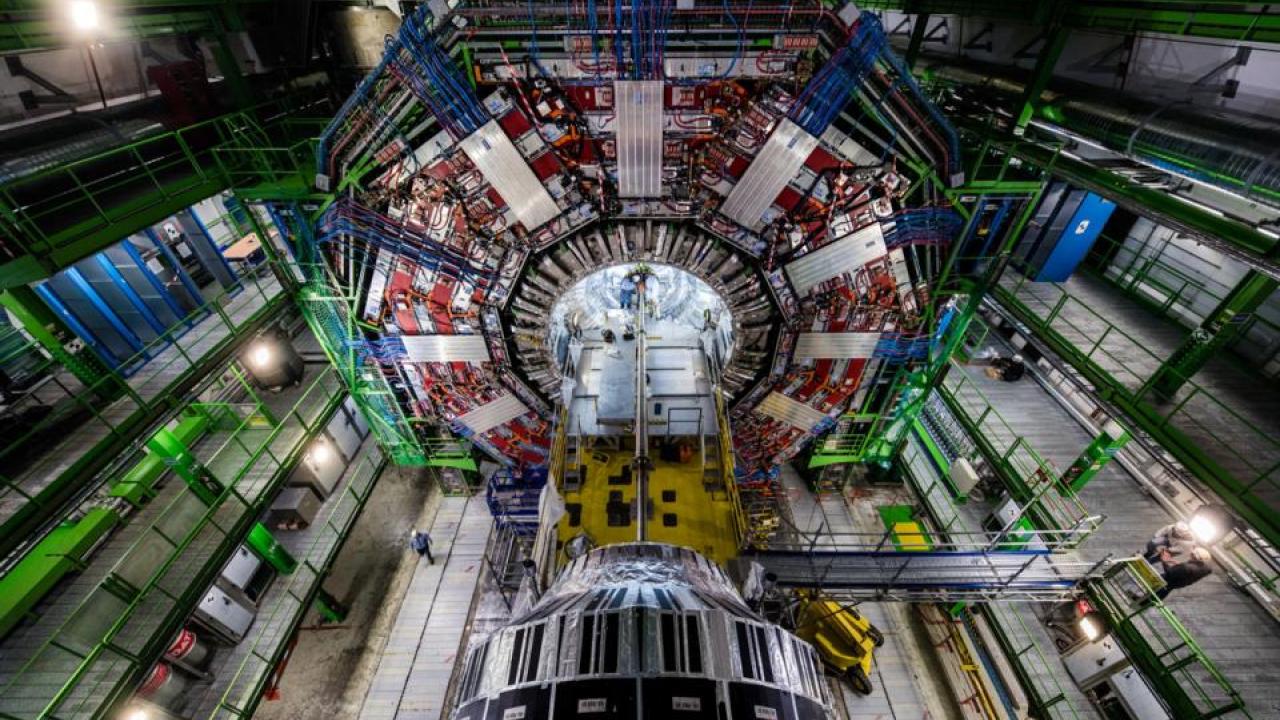There is an alarming shortfall of particle physicists prepared to design instruments that open pathways to Nobel Prize-winning discoveries like neutrino oscillations and the Higgs boson. To help fill the gap, the U.S. Department of Energy has awarded $3.7 million to a consortium led by the University of California, Davis, to train 32 graduate students in high-energy physics instrumentation.
“No discovery in physics is made using an instrument you can buy,” said Mani Tripathi, UC Davis professor of physics and principal investigator for the grant. “This award will help ensure that we can replace the aging workforce of instrumentational physicists.”
High-energy physics encompasses both fundamental research about the universe and applied technologies, such as particle accelerators for medical imaging and semiconductor manufacturing. Surveys have identified a long-standing workforce training deficit in this field according to the DOE, which aims to build a diverse, skilled pipeline of experts in high-energy physics instrumentation.
“It is critically important to ensure the next generation of scientists is well prepared to confront new challenges and drive new discoveries in nuclear science,” said Estella Atekwana, dean of the UC Davis College of Letters and Science.
DIY physics
Tripathi said one reason for the decline in students is the rise of mega-collaborations in physics, such as the 7,000-plus scientists responsible for the Large Hadron Collider at CERN and the 1,200 scientists involved in the LIGO gravitational wave observatory.
“The detector projects are now so big that a student doesn’t have a voice in them. The decision making happens at very high levels,” he said.
The new program, called the High Energy Physics Consortium for Advanced Training, or HEPCAT, will emphasize hands-on experience, with students overseeing a complete cycle of conceptual design, prototyping, testing, fabricating, commissioning and calibrating complex instruments. Each student will work with mentors from across 10 universities and five national laboratories, with a focus on topics such as sensors for extreme environments, electronics and data acquisition systems.
“Because students will be working in small topical groups, they will receive excellent mentorship and guidance,” Tripathi said.
The consortium includes researchers at seven other University of California campuses (Berkeley, Irvine, Los Angeles, Riverside, San Diego, Santa Barbara and Santa Cruz), Stanford University, Caltech and five national laboratories (Berkeley, Livermore, Los Alamos, Sandia and SLAC).
Each student in the HEPCAT program will receive two years of financial support, including travel to work at a national laboratory and attend a summer training program (modeled on the Nuclear Analytical Techniques summer school hosted by the Nuclear Science and Security Consortium). HEPCAT plans to accept at least 10 female graduate students and at least seven students from underrepresented groups (of any gender).
Graduates will be ready to move into careers in academia, industry or national laboratories, Tripathi said. Expertise in instrumentation makes it easier for physicists to move between different specialties as the field evolves. “If you’re an instrumentationalist, you have the ability to hone down on what needs to be measured and the best way to measure it.”
This is the second major nuclear science educational grant for the University of California in 2021. In February, the DOE awarded $25 million to the Nuclear Science and Security Consortium, or NSSC, for hands-on training in nuclear science, technology and policy. UC Davis is one of 11 universities in the consortium, which is led by UC Berkeley.
Media Resources
Media Contacts:
- Mani Tripathi, Physics, 530-574-4246, smani@ucdavis.edu
- Andy Fell, News and Media Relations, 530-304-8888, ahfell@ucdavis.edu
